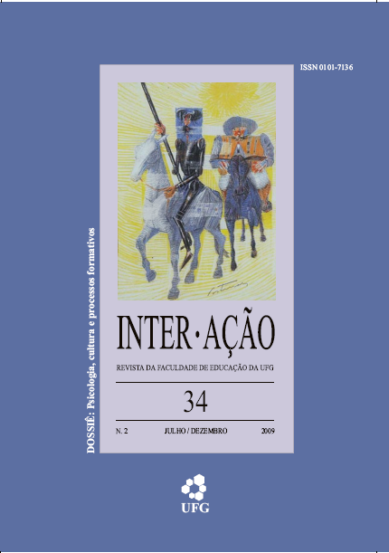PSYCHOLOGY AND TEACHER TRAINING IN THE FIRST DECADES OF THE 20TH CENTURY: HISTORICAL PECULIARITIES AND FIELDS OF DIALOGUE
DOI:
https://doi.org/10.5216/ia.v34i2.8484Abstract
Thisarticle is a reflection on psychology and teacher training between 1910 and 1930, a period when the Escolanovista Movement took root in the Brazilian historical context. Points of interest identified different intellectuals who formed a network which discussed, among other issues, the introduction of Psychology into education and teacher training. Out of Simmel and Sirinelli’s concept of sociability, a social structure was formed, influenced by the thinking of these intellectuals. This study set out to understand not a stagnant period but rather an era marked by the emergence of psychology onto the educational scenario outlining the significant subjectivities, agreements, disagreements, relationships and complexities to be presented.Downloads
Downloads
Published
How to Cite
Issue
Section
License
Inter-Ação uses the Creative Commons Attribution 4.0 License for Open Access Journals (Open Archives Initiative - OAI) as the basis for the transfer of rights. Open access means making documents available on the Internet free of charge, so that users can read, download, copy, distribute, print, search, or link to the full text of documents, process them for indexing, use them as input data for software programs, or use them for any other lawful purpose, without financial, legal, or technical barriers.
Authors publishing in this journal agree to the following conditions:
1) Authors retain copyright and grant the journal the right of first publication, with the work simultaneously licensed under the Creative Commons Attribution License, which permits redistribution of the work with attribution and first publication in this journal.
2) Authors are permitted to enter into additional, separate agreements for non-exclusive distribution of the version of the work published in this journal (e.g., for publication in an institutional repository or as a book chapter), with attribution and first publication in this journal.
3) Authors are permitted and encouraged to publish and distribute their work online (e.g. in institutional repositories or on their home page) at any time before or during the editorial process, as this may generate productive changes as well as increase the impact and citation of the published work.















